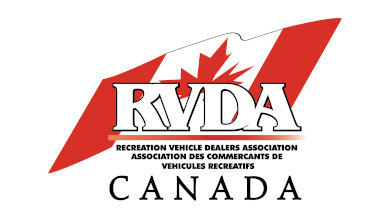Canadian RV, Camping Industry Pushes Increased Tourism Investments

Representatives from the RV Dealers Association (RVDA) of Canada and the Canadian Camping and RV Council (CCRVC) are on Parliament Hill today, April 26, to discuss implementation of a fair tax regime for Canadian campgrounds and the need for increased investments in tourism policies and infrastructure upgrades.
The RVing industry contributes billions to the national economy, but campgrounds across Canada require infrastructural improvements to accommodate new camping and RV technologies, the organizations said.
“RVing and camping is part of what makes us Canadian. Most of us had the chance, as children, to explore and visit the most incredible places and scenery this country has to offer. On top of that, our industry has a considerable economic impact that can be felt across the nation and especially in the rural parts of Canada. The manufacturing, purchasing, servicing and use of recreation vehicles contributes billions to the Canadian economy each year,” said Josée Bédard, chair of RVDA. “In fact, in 2022, the Canadian recreation vehicle industry, powered by more than 67,200 employees, generated more than $3.4 billion for the tourism sector, $1.9 billion in tax revenue and $2.7 billion in labor income. There are over 4,231 campgrounds across Canada, each offering a unique experience for Canadians and international visitors.”
But the continued growth success of the RV and camping industry is not assured: 75% of campsites lack necessary services for RVs, the organization said. The promotion of the RV sector and proper infrastructure in Canada’s existing parks are crucial to the growth of the RVing and camping industries, as well as a prosperous Canadian tourism sector.
“Our industry needs reassurance by the government that financial investments will be made to modernize campground and national parks infrastructure to a level that satisfies the steady increase in demand,” said Ellie Abucay-Giammatollo, chair of the CCRVC. “Without clear commitments from this government, our members will enter a new era for the tourism industry that is focused on clean energy, without having the proper electrification, transportation and connectivity infrastructure necessary to support this transition. This government must continue to provide financial supports to increase electrical infrastructure by providing financing and grants to businesses investing in the EV infrastructure.”
Finally, one of the chokepoints of the Canadian economy is the severe lack of skilled workers and tradespeople. Technicians play a central role in RVs moving, and less than 50% of them have their Red Seal Designation. RV service technician is only available in British Columbia and Alberta. Programs quickly reach full enrollment, leaving dozens of qualified students on waiting lists.
“Every major economic sector in Canada is negatively affected by the labour shortage crisis. However, the RV and camping industry has been advocating for efficient, cost-limited solutions that could help business owners find the right people for the job. Industry-specific solutions, such as increasing the Labour Mobility Tax Grant availability to skilled trade peoples that are temporarily relocating to pursue their Red Seal certification, would greatly help our members in finding the quality technicians needed as our industry is being transformed by the day. Sustained tourism growth starts with people, and we request that the government work with us to find ways to find, train and retain skilled workers,” the organizations said.


